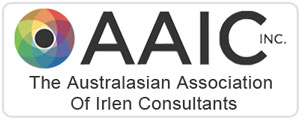Attention Deficit Disorder (ADD/HD)
There is a large overlap of behaviours between ADD/HD and Irlen Syndrome / SSS. Many ADD/HD individuals may be mislabelled.
They may be observed looking away from the page and daydreaming. They often rush through activities ignoring carless errors or apparently “give up” easily. They may seem frustrated, become distracting or easily distracted or develop behaviour problems.

These are often coping strategies to manage their Irlen symptoms. Telling them to pay more attention or to keep trying may not be helpful.
Wearing Irlen Spectral Filter Lenses helps provide better concentration, requiring reduced effort to achieve the same output. This results in an increased attention span and motivation. Improvements when using Irlen Filters can allow for easier differentiation from ADD/HD and may result in the student not needing medication.
Autism and Asperger’s Syndrome
Irlen Syndrome / SSS is likely to be a factor for many individuals with Autism Spectrum Disorders, including Asperger’s Syndrome, who demonstrate difficulties with:
- Sensory Overload: caused by lights, sunlight and bright light which can result in behaviour which “filters out” the light. This can include poor eye contact – looking down or away from visual targets, or in a series of short or sideways glances. It can result in physical symptoms such as anxiety or headaches. There may be a preference for avoiding situations with light or they may prefer to be in dull light.
- Environmental Distortions: This can extend to people and/or property. Stairs, walls, floors can appear blurry, move, change and/or disappear. These distortions can cause misperceptions which can affect gross and fine motor coordination (including ball sports), the ability to interpret facial expressions and social skills.
- Print Distortions: Distortions with print can make reading and learning difficult, even though reading skills may be good or even advanced.
Note: Not every individual with an Autism Spectrum Disorder suffers with perceptual problems, light sensitivity or sensory overload.
Psychological, Medical and Visual Problems
Robert Dobrin, MD (Amen Clinics – California, USA) reported that Irlen Syndrome should often be expected in a range of disorders: Bipolar Spectrum, Sensory Integration, ADHD, Anxiety, Tic, Mood and Reactive Attachment. He considers Irlen Syndrome may also be associated with Migraines, School Phobia, Traumatic Brain Injury, Visual Dyslexia, recurrent automobile accidents, excessive daytime fatigue and Irritable Bowel Syndrome. When anxiety associated with visual stress is reduced by wearing Irlen Spectral Filters patients make physical improvements.
Traumatic Brain Injuries (TBI), Head Injuries, Concussions and Whiplash
Up to 80% of people suffering from these conditions have one or more of the following symptoms related to visual stress:
- Print Instability – Changes in clarity or stability of the print.
- Sustained Attention and Concentration – Discomfort in reading and doing other visual activities, contributing to concentration and attention difficulties.
- Light Sensitivity – Reduced rehabilitation because when going outside, when in bright or fluorescent lighting or when driving at night with headlights and streetlights it is uncomfortable or stressful.
- Physical Symptoms – Headaches, nausea, dizziness, anxiety, irritability or stomach aches are often increased by light, when reading and doing other visually intensive activities.
- Depth Perception Difficulties – Interferes with home and work related activities that require that ability to judge depth or spatial relationships.
- Neurological Problems – Light-reduced seizures, tremors or other similar problems.
Irlen Spectral Filter Lenses eliminate the environmental factors that may be triggering stress and causing headaches and migraines. Many Irlen TBI clients reported improvements even years after the injury and after a variety of unsuccessful therapies.
Irlen Spectral Filters protect the brain from further stress and allow healing to take place. The longer those with head injuries wear their Irlen Filters the greater the increase in normal cognitive, behavioural and academic function.
Anxiety, Low Self Esteem
Irlen Syndrome / SSS is often an underlying condition most people are unaware they have. When Irlen Syndrome / SSS affects learning, reading, spelling, concentration, copying and mathematics an individual may experience feelings of inadequacy in the classroom, learning or work environment. They may take longer to process and interpret visual information and therefore take longer to complete tasks. When this occurs, for some invidividuals, it can contribute to feelings of anxiety, low self esteem and/or frustration.





